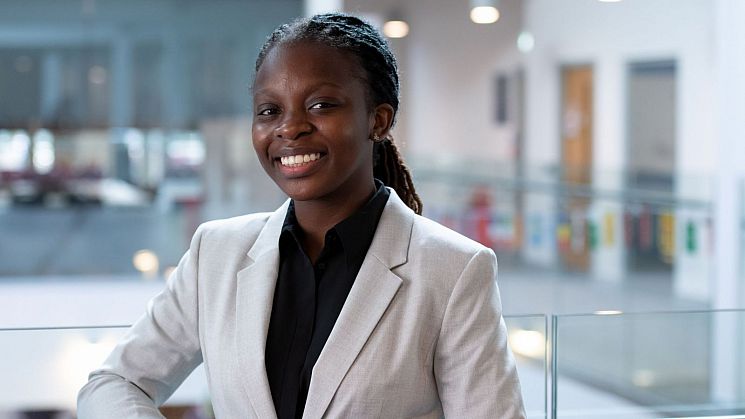Cases we've worked on
Last year we received just under 800 enquiries, and were able to give free legal advice to 113 clients. Here are some of the ways in which we've helped.
Last year we received just under 800 enquiries, and were able to give free legal advice to 113 clients. Here are some of the ways in which we've helped.

Students working in our Law Clinics
Reuniting Families
At the Sussex Law Clinics our students have been working with a young man from Afghanistan who fled to the UK to escape the Taliban while he was still a minor. He and his family suffered a series of deeply traumatic events – the Taliban invaded his family's home and murdered one of his siblings in front of him, his mother and younger sister. Our client successfully applied for asylum when he arrived in the UK and is now living here with refugee status.
He still fears for the safety of his family however, and longs to be reunited with them. While refugees are able to apply for family reunion to bring their families to join them in the UK, these are very complicated and difficult applications to make. It is usually reserved for the refugee's spouse and children. Furthermore, since the legal aid cuts came into force, it is no longer possible to get legal aid to help with refugee family reunion applications. Refugees are expected to make these applications by themselves, often with a significant language barrier and while still recovering from the traumatic events that led them to flee. This left our client in an extremely difficult and distressing situation.
We have been able to support him and his family to gather the appropriate evidence and make an application. However, if the Home Office refuse the application, he will desperately need a lawyer to represent him in the appeal hearing at the Immigration Tribunal. That is a vital step of the process that we currently don't have the resources to cover.
Outside the Rules - Successful Article 8 ECHR application
Last year, we worked with a Nigerian client who had been destitute for the last 6 years after the Home Office rejected his asylum claim. He was desperate to remain in the UK out of fear for his safety in Nigeria, and so that he could be with his two children, who were both born in the UK and have British Citizenship. Without regularizing his immigration status, he had no right to work or claim benefits. With no income, he was reliant on food banks and the hospitality of various charitable organizations to get by. He remained a very active father, with a significant role in his children's care, providing indispensable support for his autistic son. He made several applications for leave to remain on the basis of this family life, so that he could stay in the UK to continue raising his children. However, each of his applications were refused and, as a result, he had no official immigration status and no means to work his way out of destitution. He came to the Clinic and asked us to help him to make a further application for leave to remain.
His case was challenging in that he did not satisfy the criteria for leave to remain under the Home Office's Immigration Rules, despite having children in the UK who he actively cared for. Therefore, under the Immigration Rules, his application would be refused. It was therefore necessary to make an application 'outside of the Rules', relying on Human Rights Law. Such applications are only granted in exceptional circumstances. We helped him to gather and prepare evidence to show that his case was exceptional, including evidence of his son's medical condition and our client's role in caring for him. We also helped him and his family members to compose witness statements to support the application, explaining the strength of their family life and the importance of his role as a father. The application fee would ordinarily have cost £1,033 plus a £1,000 health surcharge, which was prohibitively expensive for him.
We helped him to submit a successful fee waiver application and, once that was granted, the application for leave to remain itself. The Home Office accepted that, due to the exceptional nature of his case, it would breach his, and his family's, right to family life under Article 8 of the European Convention on Human Rights to remove him from the UK. His application was granted, meaning that he now has the right to live and work in the UK. He will be able to earn an income, work his way out of destitution and to raise his children without the fear of being separated from them.
You can read more stories from the Law Clinics here.